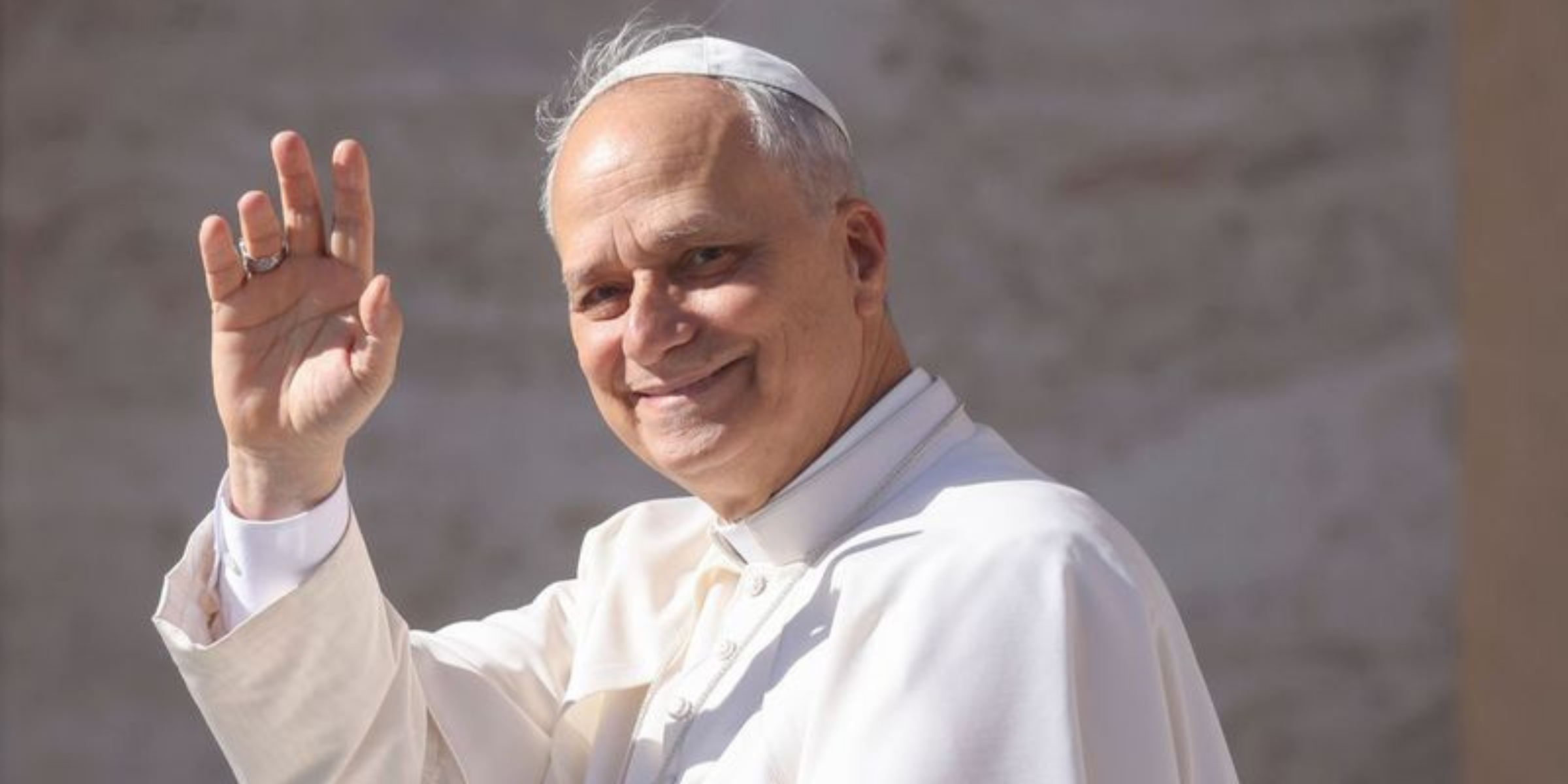
Pope Leo XIV Reveals His Top Four All-Time Favorite Movies
In a revelation no one saw coming, the head of the Catholic Church has turned the spotlight on cinema — and what he shared left both stars and the faithful reeling.
In a divine twist of drama and nostalgia, Pope Leo XIV, born Robert Francis Prevost, opened his heart to the silver screen, revealing his top four favorite films of all time ahead of a glittering gathering at the Apostolic Palace on November 15, 2025.
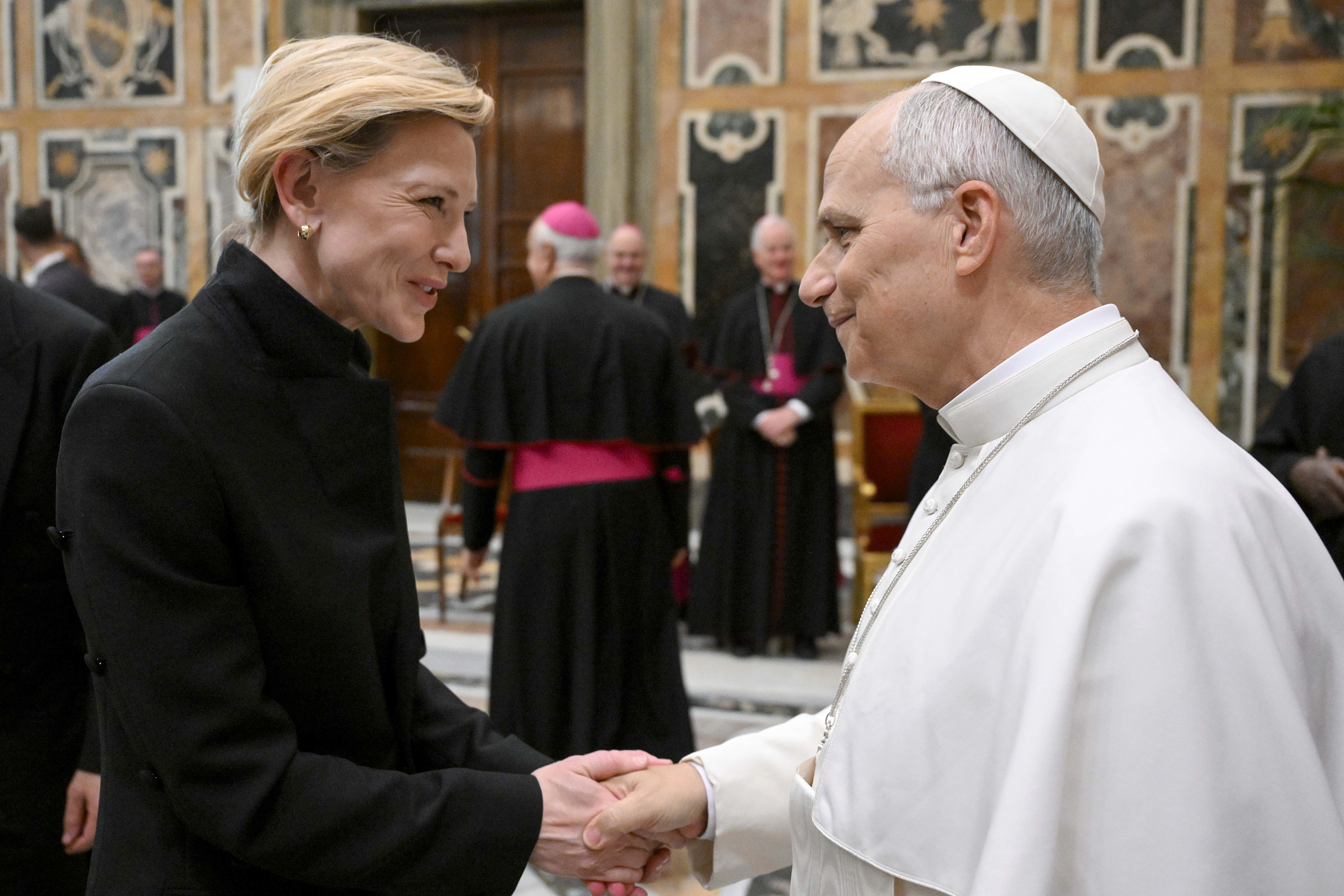
Pope Leo XIV greets Cate Blanchett during an audience with the Film Industry at the Clementine Hall of the Apostolic Palace on November 15, 2025 in Vatican City, Vatican. | Source: Getty Images
As the world's most powerful religious figure welcomed an elite entourage of filmmakers, actors, and producers, the Vatican made it official: these are the movies closest to the Pope's soul.
What followed was a list steeped in hope, heartbreak, and the human condition — and not without a few surprises.
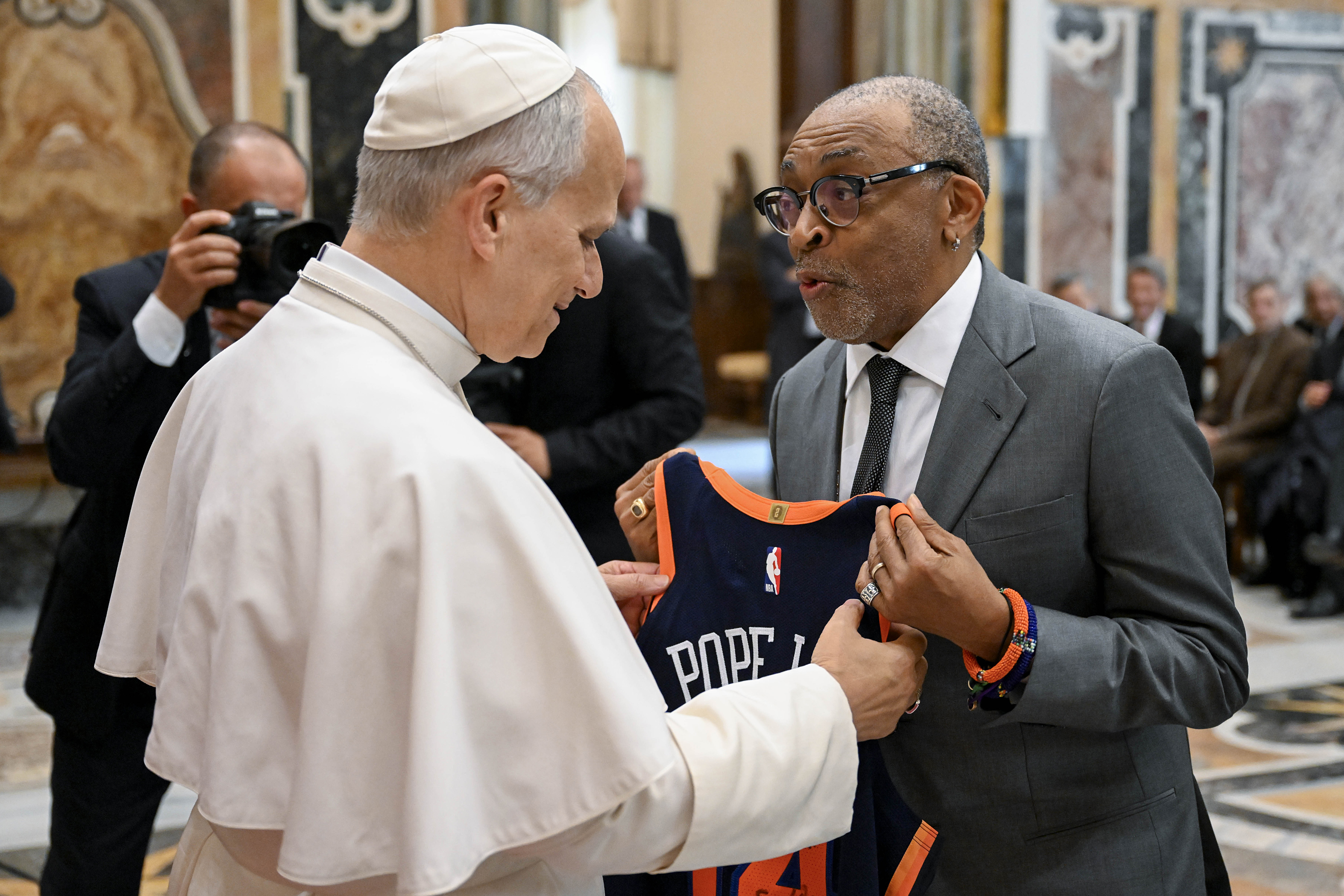
Pope Leo XIV greets Spike Lee during an audience with the Film Industry at the Clementine Hall of the Apostolic Palace on November 15, 2025 in Vatican City, Vatican. | Source: Getty Images
1. A Classic on the List: 'It's a Wonderful Life'
At the very top of Pope Leo XIV's list is the 1946 Christmas masterpiece "It's a Wonderful Life." A film centered on despair, divine intervention, and the fragile line between life and death, it tells the harrowing story of George Bailey, a man ready to end his life on Christmas Eve — until an angel named Clarence shows him the impact of his existence.

A poster for Frank Capra's 1946 drama "It's a Wonderful Life" starring James Stewart and Donna Reed. | Source: Getty Images
2. 'The Sound of Music' Strikes a Joyful Chord
A sharp emotional pivot brought us to another beloved gem: "The Sound of Music." Directed by Robert Wise and adored across generations, this 1965 musical odyssey follows Maria von Trapp, her rowdy gaggle of children, and their breathtaking escape from the Nazis.
The Pontiff, like so many others, found solace in its joyful melodies and stirring courage — a reminder that even amidst terror, love and faith can still prevail.
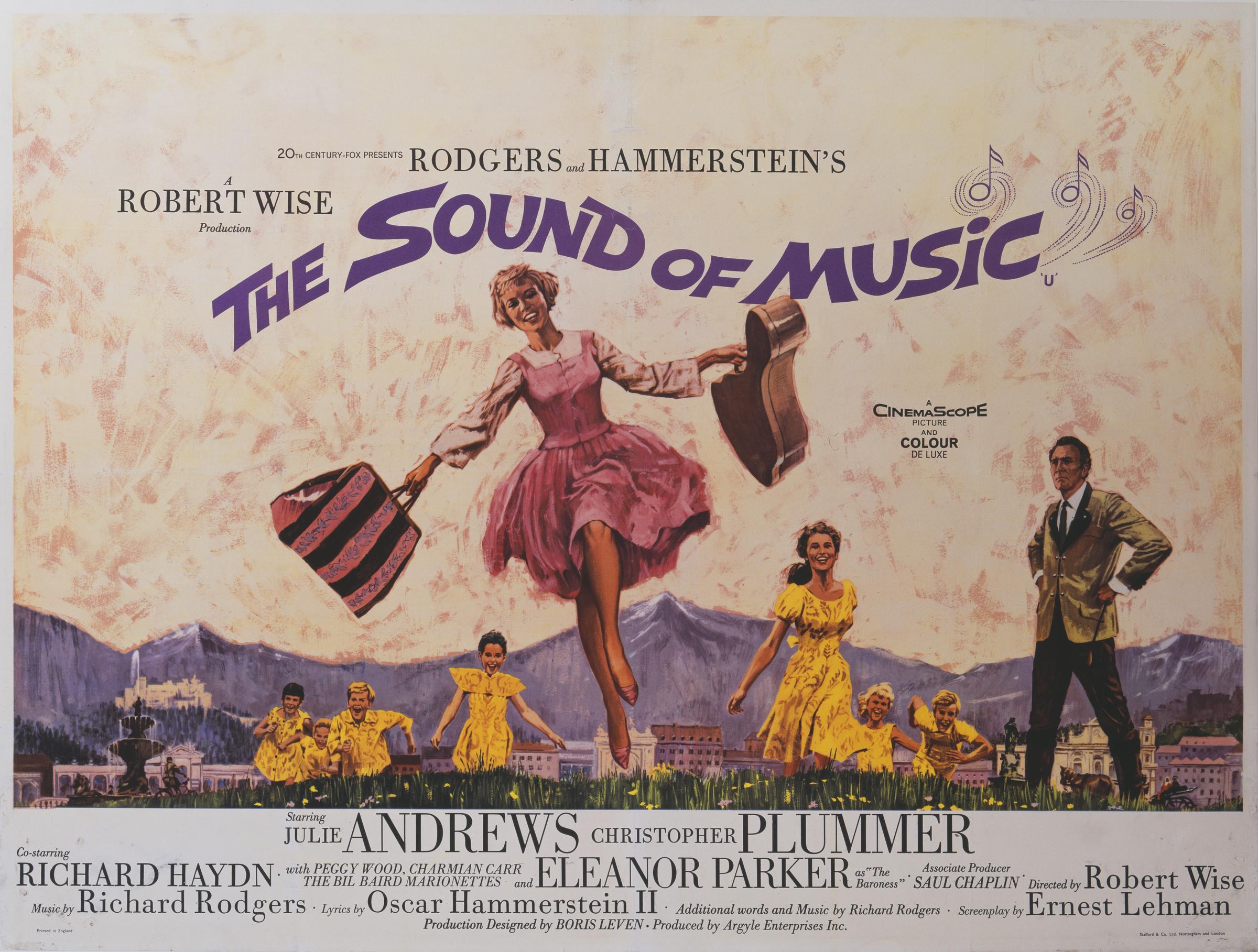
A poster for Robert Wise's 1965 drama "The Sound of Music" starring Julie Andrews, Christopher Plummer, and Eleanor Parker. | Source: Getty Images
3. 'Life Is Beautiful' Leaves a Mark
From sweetness to sorrow, the Pope's third pick plunges into the unthinkable darkness of the Holocaust, filtered through the lens of humor and humanity.
Roberto Benigni's "Life Is Beautiful" (1997) was a bold, gut-wrenching choice. The Italian-language film, which follows a father's desperate attempts to shield his young son from the horrors of a concentration camp, is a masterclass in tragedy wrapped in whimsy.
Beloved by critics and cherished by the public, the movie's inclusion confirmed that Pope Leo XIV is not afraid to feel deeply.
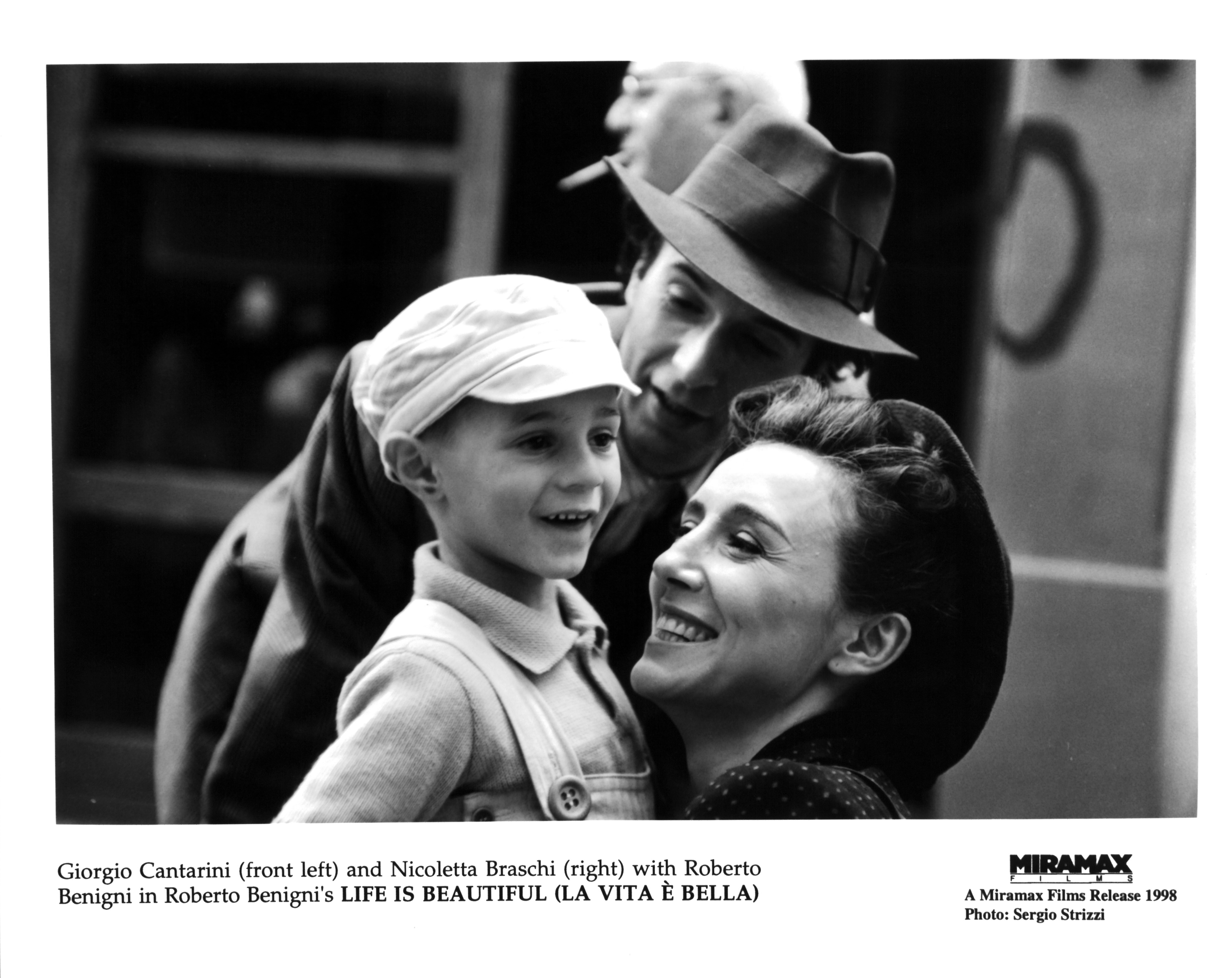
Actors Roberto Benigni and Giorgio Cantarini and actress Nicoletta Braschi in a scene from the Miramax movie "Life Is Beautiful" circa 1997. | Source: Getty Images
4. 'Ordinary People' and the Ache of American Grief
His final film, however, was the most jarring and most personal. Robert Redford's "Ordinary People" (1980) unflinchingly follows a suburban family grappling with the death of a son and the suicidal spiral of another.
A raw, emotionally complex drama, it's set not just in America, but in Illinois, the Pope's own home state.
The film's unrelenting pain and ultimate flicker of hope echoed the same themes seen in "It’s a Wonderful Life." For the Pope, grief, struggle, and redemption are not just cinematic themes — they are spiritual truths.

Timothy Hutton and Elizabeth McGovern with actor and director Robert Redford on the set of his movie "Ordinary People" based on the novel by Judith Guest, circa 1980. | Source: Getty Images
A Standing Ovation for the Soul of Cinema
During Pope Leo XIV's November 15, 2025 audience, among those in attendance at the Vatican were some of Hollywood's finest: Cate Blanchett, Chris Pine, Monica Bellucci, Maria Grazia Cucinotta, and visionary director Spike Lee, all captivated by the Pope's cinematic soul.
In his stirring address, Pope Leo XIV called cinema a "young, dreamlike and somewhat restless art form," once created merely to dazzle, but now a medium that "conveys much deeper realities."
"An expression of the desire to contemplate and understand life, to recount its greatness and fragility and to portray the longing for infinity," he said,
And in a final, unforgettable benediction, the Pope prayed that cinema would "never lose its capacity to amaze," and always remain "a home for those seeking meaning and a language of peace."
In naming his favorites, Pope Leo XIV not only shared his heart, but he also honored cinema itself as a sacred art form. To him, film is more than entertainment; it is a mirror of life, a cry for meaning, and a glimpse, however fleeting, of the divine.
The National Suicide Prevention Lifeline is 1-800-273-8255. Other international suicide helplines can be found at befrienders.org.
